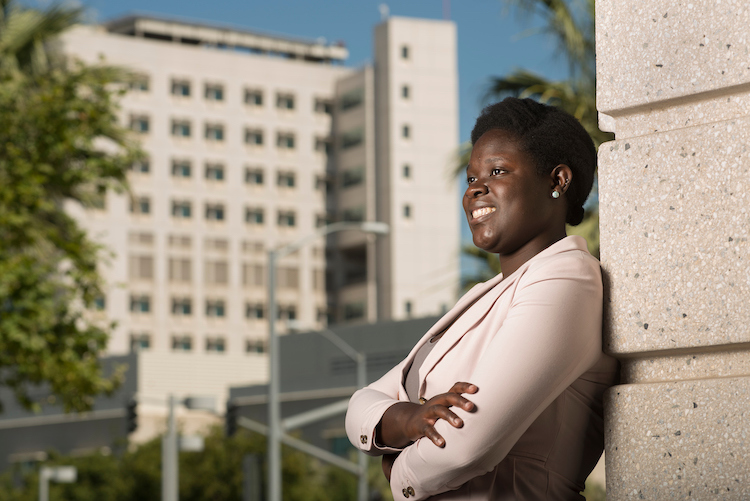Advancing Health Care Equity
Who should take this experience?
Students interested in careers that promote social equity and justice in health care, whether as providers, advocates, or policymakers. This program will provide credit toward degrees in Science and Technology Studies (8 units) and Religious Studies (8 units) and (Molecular cell Biology) (3 units).
Offered Winter 2024
- Program Flyer
- AHCE info-session_2024 PowerPoint.pdf
- Info Session Recording 10/2/23
- Info Session Recording 6/1/22
- Info Session Recording 9/28/22
Sign up to receive updates on our upcoming experiences and applications with Quarter at Aggie Square.
Inequities in healthcare delivery mean that many who most need health care cannot access it. To become health care professionals who are; also agents for the improvement of health outcomes for all, students need to be well-versed in the sociocultural and historical factors that influence health care and the social, economic, and political systems through which it is delivered.
This Quarter at Aggie Square experience will prepare students to promote social equity and justice in health care, whether as providers, advocates, or policymakers. Students will receive a strong foundation in pressing areas of challenge and change in health care: medical technologies, data analysis, privacy, cultural sensitivity, equity, and access to care. Through courses in Science and Technology Studies and Religious Studies, a community internship, and a public lecture series, students will learn to understand the role of history, social institutions, and power dynamics in shaping our current healthcare system and begin to consider new solutions. Learn more.
Caring for people as a medical professional is a tangible way to contribute to individuals' well-being, but only if those individuals have access to care. The benefits of the last 150 years of medical innovation have not been distributed equitably.
Curriculum
FACULTY
- Emily Merchant, Science and Technology Studies
- Meaghan O’Keefe, Religious Studies
-
Marina Ellefson, Molecular and Cellular Biology
COURSES
This experience offers courses in Science and Technology Studies (STS), Religious Studies (RST) and Molecular and Cellular Biology (MCB).
- MCB 23 Health and Medical Technologies (3 units)
- Historical account of the progression of cancer treatment, prevention, and human understanding of the biological basis of cancer. Past, present and future social implications of cancer treatment and prevention.
- STS 115 Data Sense and Exploration (4 units)
- Data science and the communication of data insights through critical storytelling. Attention to the historical and social contexts of data analysis, emphasizing narrative, visualization, and exploration. Introduction to the R computing environment for data analysis.
- RST 152 Justice, Equity and Privacy in Medical Humanities (4 units)
- Study of the religious bases of ethics through examination of ethical problems that arise in different religious cultures around the world and in nations where multiple religious cultures face similar issues.
- RST 130 Health Care Equity Lab, Speaker Series (4 units)
- A public speaker series, and a 4-unit skill-building laboratory will round out this experience. Students will learn to translate ideas and experiences from the entire program into real-world career experience by working in groups of four to identify and propose solutions to problems of health care equity.
- STS 180 Internship (4 units)
- A 4-unit internship in a health-care-oriented community organization

INTERNSHIPS
Each student will undertake an internship and complete a research project of benefit to their organization. Possible internships include:
- UC Davis-affiliated research institutes
- Sacramento-based advocacy organizations
- State agencies
COMMUNITY PARTNERS AND ENGAGEMENT OPPORTUNITIES
Students will attend a public lecture series featuring UC Davis and CSU-Sacramento faculty and community leaders. This lecture series will be organized are in partnership with the Data Science Initiative, the Feminist Research Institute, the Ethics Commons, and Blaisdell Medical Library. These collaborations will provide our students with contacts for future activities in these areas and widen the impact of the Advancing Health Care Equity program to benefit UC Davis and the Sacramento community.
Learn More
Many students begin careers in the allied health fields because they want to be a force for good in the world. Caring for people as a medical professional is a tangible way to contribute to individuals’ well-being, but only if those individuals have access to care. The benefits of the last 150 years of medical innovation have not been distributed equitably. Access is structured by and perpetuates existing inequalities of race, gender, class, nationality, language, and sexuality. To fully equip students with the tools they need to become not just health care professionals, but also agents for the improvement of health outcomes for all, this program will introduce them to sociocultural and historical factors that influence health care and the social, economic, and political systems through which it is delivered.

